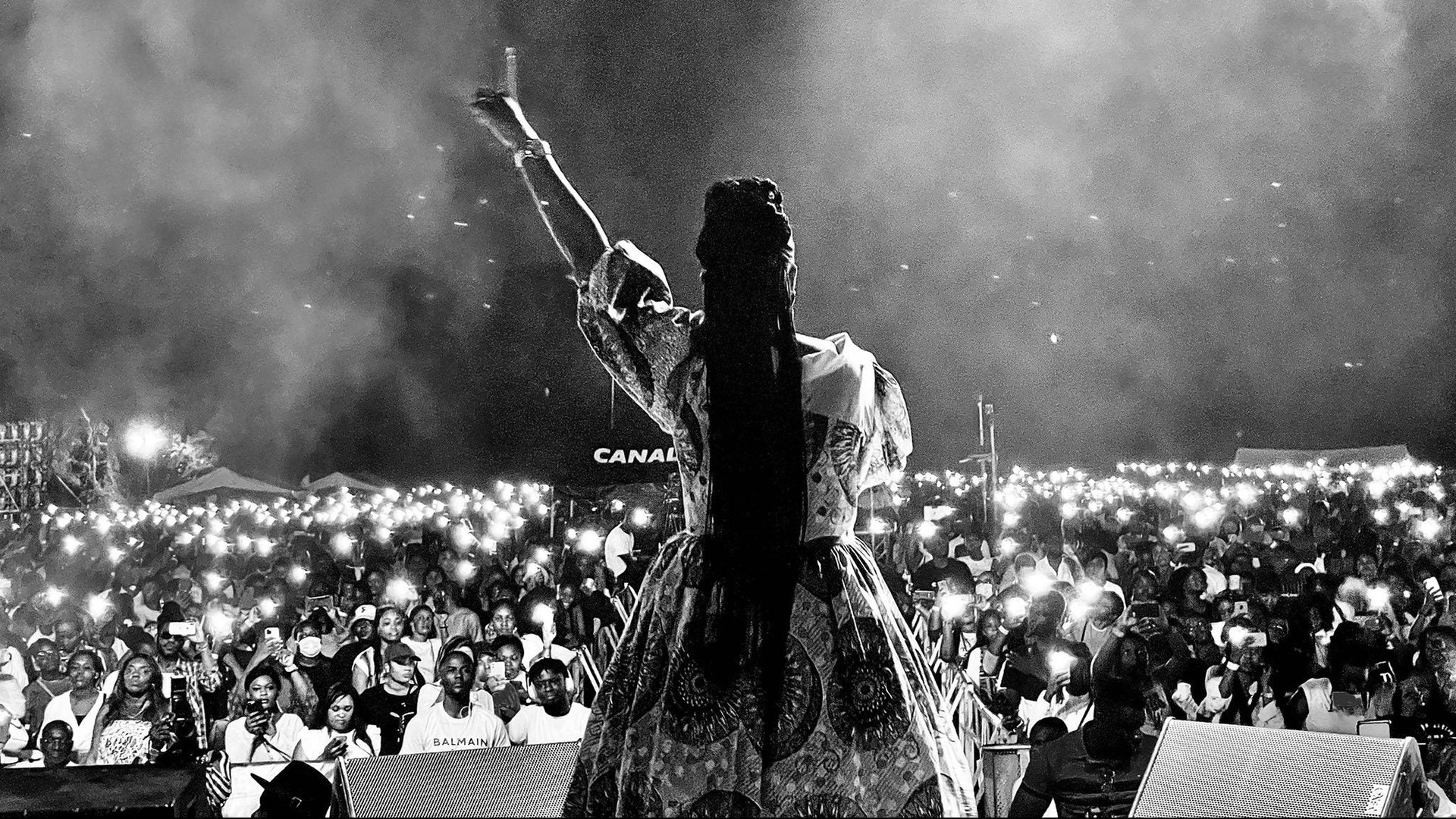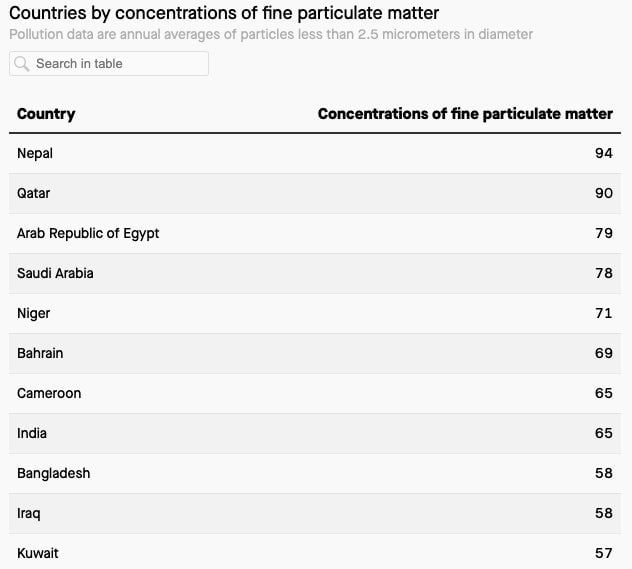Africa debt appetites, maggot hub, startup expansion
Hi Quartz Africa readers,


Hi Quartz Africa readers,
Investors can’t get enough of Africa’s debt.
A huge appetite for African eurobonds is spurring a wave of issuances in the continent. Benin saw its ratings outlook improve after successful eurobond issuances in January. In February, Côte d’Ivoire raised $1.03 billion in a eurobond sale which saw investors place orders for triple the amount offered. (The sale was a reopening of a eurobond sale issued in November, Africa’s first during the Covid-19 pandemic.) Now, Kenya is planning to use the debt instrument to raise $1 billion by June, and Ghana and Nigeria are also preparing their own issues.
After a pandemic-induced lull in borrowing, governments and investors are feeling more confident about Africa’s prospects, in part, thanks to the billions of dollars worth of Covid-19 recovery help from the IMF and other multilateral lenders, says George Ogutu, head of research at Genghis Capital in Nairobi.
African countries typically use eurobond funds to finance maturing debt obligations and heavy infrastructure projects, and it’s no different during the pandemic. Ghana’s planned eurobond issue this year is intended to support the country’s budget and manage its debt. But some have criticized the rates that African countries pay for these bonds.
Eurobonds are particularly attractive to investors looking for higher yields than those offered by developed countries, Ogutu says. “Anything that is screaming ‘emerging market’ or ‘frontier market,’ where most of the African economies are pigeonholed into, that’s also what has led to this allure or the oversubscription in the eurobonds that have been issued,” he says.
Still, investors face risks. Ethiopia’s eurobond plunged in February as the country sought to restructure its external debt and saw its ratings downgraded. And Zambia defaulted on the repayment of a $42.5 million eurobond coupon late last year as it struggled to fight the pandemic and sustain its economy.
The eurobond market has opened a spigot of funding that could be promising for African countries. As in the past, a key will be whether governments end up paying too much for their debts.—Carlos Mureithi and John Detrixhe
Five stories from Quartz Africa
Startups look abroad for international debuts. Instead of looking for growth opportunities in neighboring countries, some African startups, like Nigeria’s first bus-hailing service Plentywaka, are actively skipping continental expansion and heading for foreign shores. Grace Akinosun reports why overseas markets might provide a softer landing.
Using simple sentences to understand virus mutations. MIT researchers are using machine-learning algorithms developed for natural language to assess which coronavirus mutations best evade the body’s immune defenses. As Brian Browdie writes, the insights carry particular urgency for regions such as Africa, where the spread of the novel coronavirus among largely unvaccinated populations increases the opportunity for concerning mutations to occur.
Breaking down debt data. Nigeria and China mark their golden jubilee of official relations in 2021. As trade and investment have grown, so has lending, leading to an increased focus on the balance of the bilateral relationship. With claims that Abuja is risking its sovereignty, Allwell Okpi provides a fact sheet on how much money Nigeria truly owes China.
The continent’s new maggot protein hub. The insect protein space will be worth an estimated $8 billion globally by 2030. As South African industry leader AgriProtein leaves the continent, east African startups are poised to take the lead, given its conducive climate, welcoming regulatory environment, and urgent demand for new sources of animal feed protein. Eve Driver talks to the young and energetic entrepreneurs in the space.
The world’s biggest labels scramble to sign African artists. Fueled by a young population, great musical talent, and more streaming opportunities, Africa’s music industry is booming. Carlos Mureithi interviews executives at Universal Music Group and Warner Music Group to learn more about their expansion strategies, and the industry’s growth potential.

Table of the week
The best way scientists know to gauge how harmful air can be is by assessing the concentration of fine particulate matter—particles 2.5 microns in diameter or smaller. Once these particles enter the lungs, they can trigger immune reactions that can damage tissues over time.
In Quartz’s latest field guide on the air you breathe, Alex Ossola looks at the concentrations of fine particulate matter by country in 2016, according to WHO, and provides a searchable table with that same data. An alarming number of countries in Africa rank high on the list.

✦ Curious to know where your country ranks, and how to improve the air quality of your home? Breathe better with a Quartz membership, which gives you access to all of Quartz’s field guides and other member exclusive journalism.
Dealmaker
Quro Medical, a South African healthtech startup, has emerged from stealth to announce a $1.1 million round. The round was led by Kenya-based Enza Capital and South African VC firm Mohau Equity Partners. The startup is trying to scale alternative models for African healthcare, especially remote patient monitoring and healthcare delivery.
Numida, the Ugandan fintech startup providing credit and other financial services to semi-formal micro and small businesses, has announced the close of its $2.3 million seed round. Leading the investment is MFS Africa, with participation from DRK Foundation, Equilibria Capital, and Segal Family Foundation alongside angel investors. Numida plans to expand aggressively in Uganda, with an eye on West Africa.
Appzone, an Africa-focused fintech software provider, has closed $10 million in Series A investment. CardinalStone Capital Advisers, a Nigerian investment firm, led the funding, with V8 Capital, Constant Capital, Itanna Capital Ventures, and Lateral Investment Partners also participating. With this investment, the firm, which has a heavy presence in Nigeria, aims to expand in more African countries and invest in top engineering talent.
Your thoughts
What does it mean to be driven by purpose? Quartz is looking to hear your opinion on what it means to be a purpose-driven organization and individual. Take this short, five-minute survey to share your insights. Your input is invaluable and we can’t wait to hear what you think!
Other things we liked
Africans are editing their Wikipedia presence. In film, journalism, and academia, stories about Africa are mainly being told through the prism of colonialism. Wikipedia, the world’s largest compendium of knowledge, offers Africans a chance to democratize information about the continent in English and indigenous languages, writes Tolu Olasoji in Reasons To Be Cheerful.
A potential superstar loses his way. For decades, Europe’s soccer elite has leaned on the best talent from the continent, possibly peaking with Liberia’s current president—and 1995 world footballer of the year—George Weah. For Liverpool’s Naby Keita, however, injury and loss of form have slowed down a promising career, writes Melissa Reddy in the Independent.
Sassou Nguesso’s new hurdles. Having recently been re-elected for another five years as Congo-Brazzaville’s president under contested conditions, after already serving for 36 years over two periods, Denis Sassou Nguesso’s quest to retain power within his confines faces new challenges, Brett L. Carter writes in Africa Arguments.
Africa’s famous jockey is finally honored. Being a Black man in equestrian sports, a predominantly white sport, meant South African Enos Mafokate was never good enough, no matter how many races he won. In New Frame, Matshelane Mamabolo explains why a green jacket, coming decades after his heyday, means everything to the legend.
A critique of inequality that’s also a revenue stream. Unilever’s history of owning palm-oil plantations inspired Dutch artist Renzo Martens’s White Cube documentary, about the process of building a museum and helping former plantation workers in the Democratic Republic of Congo form an artists’ cooperative. Martens says it’s a way to reverse the flows of capital in which wealth generated by exploiting commodities helped fund a rarefied European art world, Nina Siegal explains in the New York Times.
Keep an eye on…
Cape Verde legislative elections. The archipelago vote today will see the prime minister’s Movement for Democracy challenged by a number of new parties, in a campaign season marked by arguments over whether to hold political rallies given Covid-19.
Is business journalism a good career choice? Quartz’s new seminar series, “A Better Kind of Business Journalism,” will tackle the fundamentals of business journalism and the ways it could become more accessible to both journalists and readers. Our inaugural event will bring together a panel of journalists to answer what’s changing in the industry and what it takes to succeed. Register here. (April 21)
🎵 This brief was produced while listening to “Thembalam’” by Zahara.
Our best wishes for a productive and ideas-filled week ahead. Please send any news, comments, suggestions, ideas, insect recipes, and up-and-coming artists to [email protected]. You can follow us on Twitter at @qzafrica for updates throughout the day.
If you received this email from a friend or colleague, you can sign up here to receive the Quartz Africa Weekly Brief in your inbox every week. You can also follow Quartz Africa on Facebook.